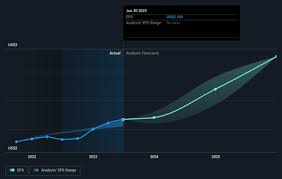Alinta Energy boss likens nuclear pursuit to chasing 'unicorns in the garden'

- In short: Alinta Energy boss Jeff Dimery has thrown cold water on plans to replace coal-fired plants with nuclear power.
- Mr Dimery said Alinta considering nuclear power "wouldn't be a great use of our time" given Australia's ban on the technology.
- What's next: The Alinta head said consumers would ultimately pay more for power courtesy of Australia's energy transition.
The head of one of Australia's biggest energy companies has thrown doubt on federal opposition plans to replace coal plants with nuclear power, likening them to "looking for unicorns in the garden".
Jeff Dimery, the boss of Alinta Energy, said while it was theoretically possible Australia could build some nuclear power in the next 10 to 15 years, legislated bans on the technology meant this would be all but impossible.
The comments came during a National Press Club address in which Mr Dimery also said consumers should brace for higher energy costs as the country transitioned away from fossil fuels.
Mr Dimery said Australia's spending on energy would inevitably rise as a share of GDP thanks to rising costs and the eye-watering investments needed in green energy sources, transmission lines and back-up sources of power.

But he warned that too many people were not prepared for the "reality" and governments and the industry needed to ensure consumers were not left behind.
"Australians will have to pay more for energy in the future," Mr Dimery said.
"We will spend more as a percentage of GDP on energy, energy services, and energy infrastructure.
"Whether we pay through our taxes, or pay the large up-front costs of an EV, or batteries and solar or we're paying more for electricity from the grid – we'll all pay more in the aggregate.
"We need to be honest about that.
"And I don't think the average Australian is prepared for that reality."
Despite the likelihood of higher energy spending in the future, Mr Dimery also argued the transition offered opportunities for consumers.
These included the chance that electric vehicles powered by rooftop solar panels could largely or totally eliminate petrol bills, and slashing electricity costs by shifting demand to the middle of the day.
Solar 'glut' killing big renewables
In a wide-ranging speech on the energy transition to date, Mr Dimery said Australia had secured all the "easy wins" that were available and it was mostly "hard wins (that) lie ahead of us".
According to the Alinta chief executive, the glut of rooftop solar power that was flooding into the market every day was ruining the business case for new large-scale renewable energy projects.
He said there was now so much solar in the market during daylight hours, large-scale projects such as wind and solar farms were being "curtailed" – or switched off – at increasing rates.
These rates, he said, had risen from 10 per cent of the time in the last quarter of 2022 to 13 per cent of the time in the last quarter of 2023.
"Now, you might think '3 per cent increase, who cares'," Mr Dimery said.
"Well … boards, investors, and developers care.
"No one wants to lose 13 per cent of their output – and no one dares think just how much more could be lost.
"That could be the difference between profitable and unprofitable.
"In short … continued subsidies at one end of the market are driving higher uptake into a glut and undermining the economics of new and existing large-scale renewables."

Mr Dimery noted governments, including the Commonwealth through its multi-billion dollar capacity investment scheme, were stepping into the breach to underwrite large-scale generation projects.
It was a similar story with high-voltage power lines, which the federal government was helping to fund through its $20 billion Rewiring the Nation policy.
However, Mr Dimery said it was imperative that governments and industry build the back-up or "firming" capacity that would be needed to fill in the blanks when small- and large-scale green sources were not enough.
Nuclear 'unicorns in the garden'
Among these, he said, were "long-duration storage" facilities such as the Snowy 2.0 pumped hydro project, gas plants that could ramp up and down quickly, and consumers empowered with solar and batteries.
"Without pumped hydro, or in Victoria's case, if the generation profile isn't uplifted by offshore wind to something closer to base-load, then coal and rooftop solar will be locked into a negative feedback loop," he said.
Asked about the part nuclear power could play in Australia's energy mix, Mr Dimery was indifferent.
The question of whether Australia should build nuclear power plants looms as a key battle at the next federal election, with the Coalition set to formally announce its policy in favour of the technology.
Quoting his age as 55, Mr Dimery suggested he would be retired well before any nuclear power plant could come online.
He noted nuclear power was banned in Australia and overturning any such ban would be a "lengthy process".

"And then there's a lengthy process to go through the development and construction, in which time I'll be retired," he said.
"You could imagine our shareholder and our board wouldn't be too impressed if the management team was sitting around contemplating building power stations that are not legal.
"It wouldn't be a great use of our time.
"Based on what I've read, could you, if you started now, have nuclear in the market by 2035, 2038?
"The answer would be yes.
"But, again, no one is starting now because the legislation isn't conducive to us even exploring that.
"So … it's kind of like looking for unicorns in the garden."
Mr Dimery questioned how relevant the technology was for the pressing task of replacing Australia's ageing fleet of coal-fired power plants.
Many coal generators, including the Loy Yang B plant owned and operated by Alinta in Victoria, are due to retire in the next 10 to 15 years.


 Australia
Australia Argentina
Argentina  Austria
Austria  Brazil
Brazil  Canada
Canada  Germany
Germany  Ireland
Ireland  Italy
Italy  Malaysia
Malaysia  Mexico
Mexico  New Zealand
New Zealand  Poland
Poland  South Africa
South Africa  United Kingdom
United Kingdom  United States
United States 






















